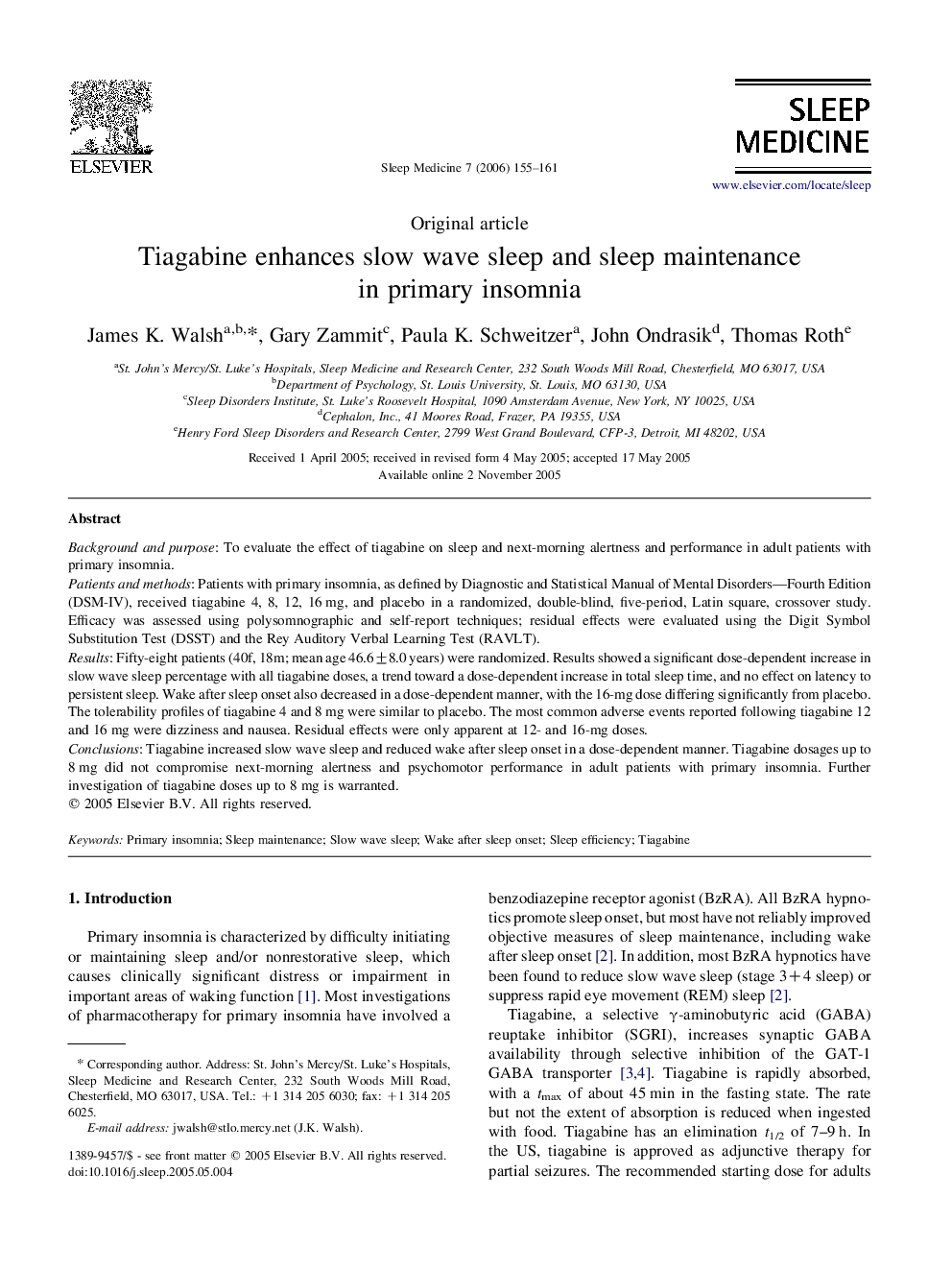| Article ID | Journal | Published Year | Pages | File Type |
|---|---|---|---|---|
| 3177934 | Sleep Medicine | 2006 | 7 Pages |
Background and purposeTo evaluate the effect of tiagabine on sleep and next-morning alertness and performance in adult patients with primary insomnia.Patients and methodsPatients with primary insomnia, as defined by Diagnostic and Statistical Manual of Mental Disorders—Fourth Edition (DSM-IV), received tiagabine 4, 8, 12, 16 mg, and placebo in a randomized, double-blind, five-period, Latin square, crossover study. Efficacy was assessed using polysomnographic and self-report techniques; residual effects were evaluated using the Digit Symbol Substitution Test (DSST) and the Rey Auditory Verbal Learning Test (RAVLT).ResultsFifty-eight patients (40f, 18m; mean age 46.6±8.0 years) were randomized. Results showed a significant dose-dependent increase in slow wave sleep percentage with all tiagabine doses, a trend toward a dose-dependent increase in total sleep time, and no effect on latency to persistent sleep. Wake after sleep onset also decreased in a dose-dependent manner, with the 16-mg dose differing significantly from placebo. The tolerability profiles of tiagabine 4 and 8 mg were similar to placebo. The most common adverse events reported following tiagabine 12 and 16 mg were dizziness and nausea. Residual effects were only apparent at 12- and 16-mg doses.ConclusionsTiagabine increased slow wave sleep and reduced wake after sleep onset in a dose-dependent manner. Tiagabine dosages up to 8 mg did not compromise next-morning alertness and psychomotor performance in adult patients with primary insomnia. Further investigation of tiagabine doses up to 8 mg is warranted.
